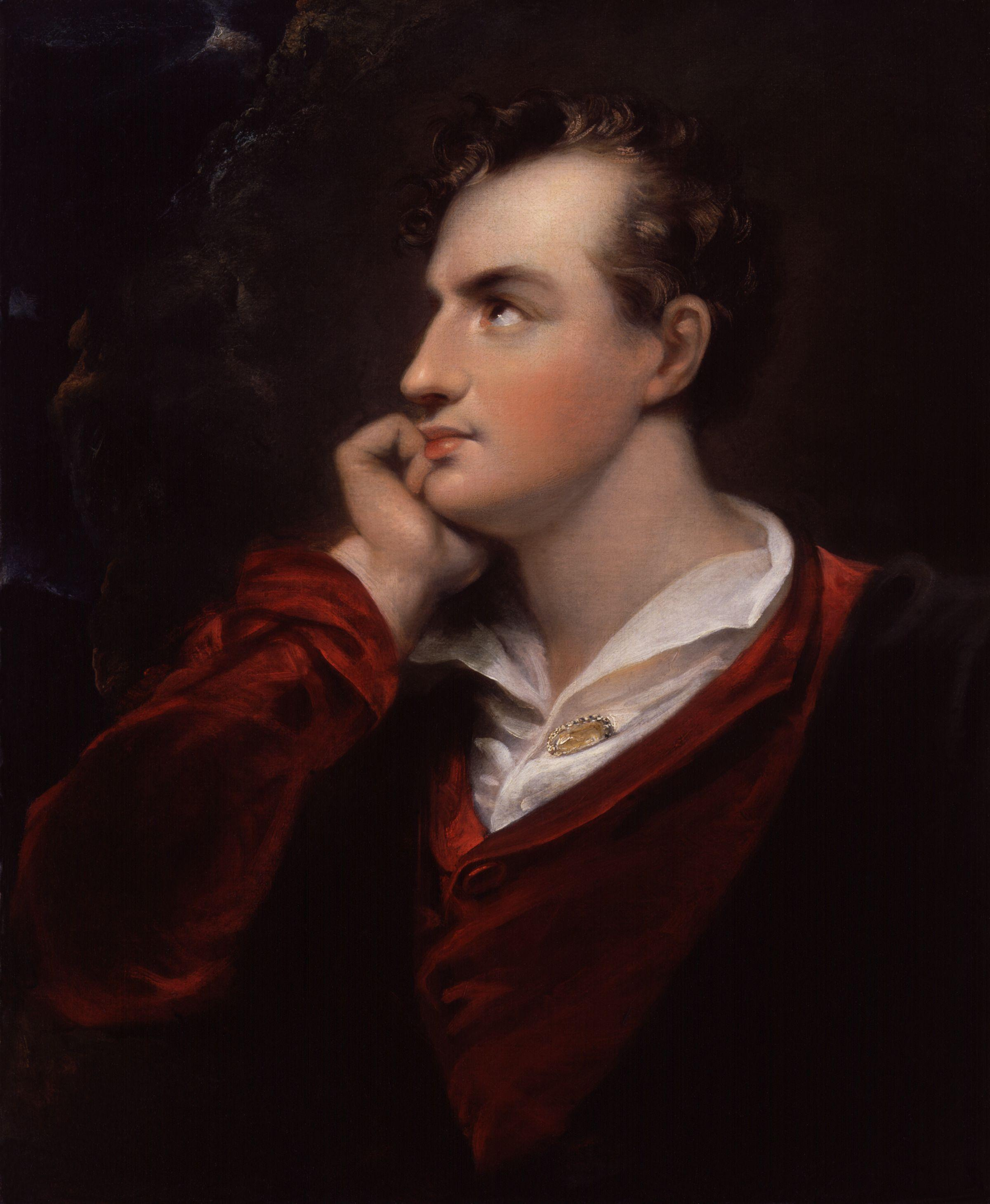
George Gordon Byron frasi celebri
Frasi sull'amore di George Gordon Byron
Origine: Da So we'll go no more a-roving, in Poesie, 1817
Origine: Citato in Tomba di Giulietta http://www.verona.com/index.cfm?Page=Guida§ion=luoghi&id=177, Notiziario BPV, numero 2, anno 1995.
Frasi sulla vita di George Gordon Byron
Don Giovanni
Origine: Citato in Elena Spagnol, Citazioni, Garzanti, 2003.
Origine: Da Il sogno, capitolo I
George Gordon Byron Frasi e Citazioni
“Il ricordo del piacere non è più piacere. Il ricordo del dolore è ancora dolore.”
Origine: Da Marin Faliero doge di Venezia
“Chi ha da fare non ha tempo per le lacrime.”
Origine: Da I due Foscari, Atto IV, Scena 1
“Oh Roma! mia patria! città dell'anima!”
IV canto
Il pellegrinaggio del giovane Aroldo
“Il "buon tempo andato"… il tempo è sempre buono quand'è andato.”
Origine: Da L'età del bronzo
“Non v'è nulla, senza dubbio, che calmi lo spirito come il rum e la vera religione.”
Origine: Citato in Focus, n. 94, p. 168.
canto IV, st. 1
Il pellegrinaggio del giovane Aroldo
“Più riposo non arreca il sonno che il piacere più non sazia.”
libro Il corsaro
Un vaso d'alabastro illuminato dall'interno
Origine: Citato in Anthony Clifford Grayling, Il significato delle cose
“Nello sport puoi scegliere tra il piacere della vittoria e il piacere della sconfitta.”
Origine: Citato in Marco Pastonesi e Giorgio Terruzzi, Palla lunga e pedalare, Dalai Editore, 1992, p. 100, ISBN 88-8598-826-2.
Origine: Citato in Kay Redfield Jamison, Toccato dal fuoco, traduzione di A. Serra, TEA, 2009, cap. 1, p. 18.
Origine: Citato in André Maurois, La prima "Lady" stregata da Byron
“Il diavolo non ha al suo arco frecce che vadano dritto al cuore più di una bella voce.”
Origine: Citato in Leggendo qua e là..., La settimana enigmistica, N. 4370, p. 4.
Un vaso d'alabastro illuminato dall'interno
Origine: Da A Thomas Moore, luglio 1817, in Pezzi domestici e altre poesie, traduzione di Cesare Dapino, Einaudi, Torino, 1986, p. 189. ISBN 88-06-59386-2
George Gordon Byron: Frasi in inglese
“But nothing rests, save carcases and wrecks,
Rocks, and the salt-surf weeds of bitterness.”
Act II, scene i.
Manfred (1817)
Contesto: Think'st thou existence doth depend on time?
It doth; but actions are our epochs: mine
Have made my days and nights imperishable
Endless, and all alike, as sands on the shore
Innumerable atoms; and one desert
Barren and cold, on which the wild waves break,
But nothing rests, save carcases and wrecks,
Rocks, and the salt-surf weeds of bitterness.
Letter to Thomas Moore (9 April 1814).
Contesto: My great comfort is, that the temporary celebrity I have wrung from the world has been in the very teeth of all opinions and prejudices. I have flattered no ruling powers; I have never concealed a single thought that tempted me.
“Then stirs the feeling infinite, so felt
In solitude, where we arealone.”
Origine: Childe Harold's Pilgrimage
“Tis strange - but true; for Truth is always strange,
Stranger than Fiction”
Variante: For truth is always strange; stranger than fiction.
“They never fail who die
In a great cause.”
Marino Faliero, Act II, Scene 2, reported in Bartlett's Familiar Quotations, 10th ed. (1919).
“A woman being never at a loss… the devil always sticks by them.”
Origine: Lord Byron: Selected Letters and Journals,
“I had a dream, which was not all a dream.”
Darkness http://readytogoebooks.com/Lb-Drk85.htm, line 1 (1816).
“On with the dance! let joy be unconfin'd”
Origine: Childe Harold's Pilgrimage
Journal for Saturday, 27th November 1813; Quoted in Letters and Journals of Lord Byron by Thomas Moore (1830), Vol III, Chap. XVII, p. 208 http://books.google.com/books?id=nloLAAAAIAAJ&pg=PA208
